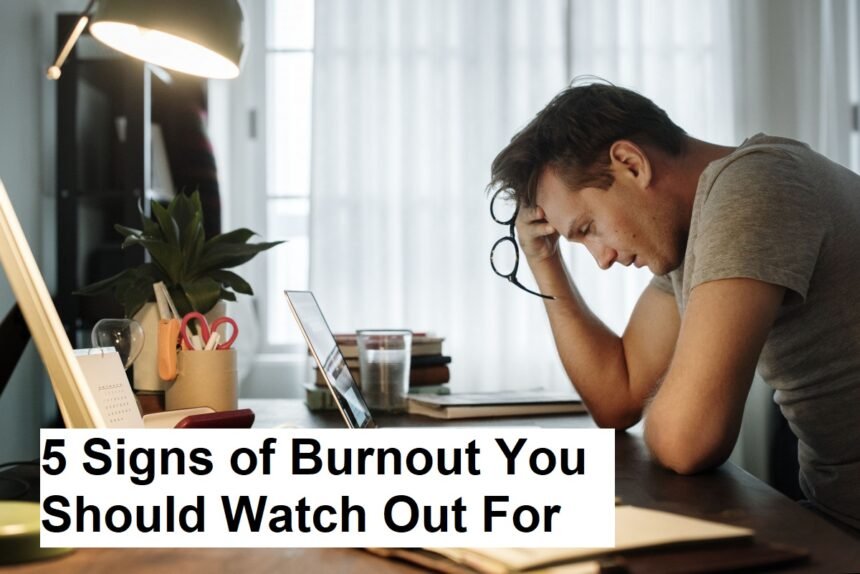We all have busy days and stressful weeks, but burnout is on another level. It’s not just about being tired — it’s about feeling emotionally drained, mentally checked out, and physically exhausted for a long time.
In this article, we’ll explore 5 signs of burnout you should watch out for, break down the difference between burnout, regular stress, and short-term depression, and share practical steps to help you recover if you’re already experiencing burnout.
Burnout vs. Regular Stress vs. Short-Term Depression
Understanding what you’re dealing with is key to taking the right action.
1. Burnout
Burnout is a state of emotional, physical, and mental exhaustion caused by prolonged stress, often related to work, caregiving, or overcommitment. It builds up over time and can make you lose motivation completely.
2. Regular Stress
Stress is a normal short-term reaction to challenges. It can be intense but usually fades once the stressful situation ends.
3. Short-Term Depression
This involves persistent sadness, loss of interest, and low energy, but it might not be linked to work overload. Unlike burnout, depression can occur even without external stress factors.
Key Difference: Stress can motivate you in small doses, depression affects your mood deeply, and burnout drains your energy, motivation, and purpose.
5 Signs of Burnout You Should Watch Out For
1. Constant Exhaustion
No matter how much you sleep, you still feel drained — both physically and emotionally. You may find it hard to get out of bed or start your day.
Tip: Monitor your energy levels daily. If exhaustion persists for weeks, it’s a red flag.
2. Loss of Motivation
Tasks that once excited you now feel like a burden. You may procrastinate more or feel indifferent toward your responsibilities.
Tip: Reconnect with your “why” — the reason you started your job or activity in the first place — and see if it still aligns with your current goals.
3. Reduced Productivity and Focus
Burnout clouds your thinking and slows your work pace. Simple tasks feel overwhelming, and your ability to concentrate drops significantly.
Tip: Break your work into small, manageable steps and take short breaks to reset your focus.
4. Increased Irritability or Negativity
You might notice yourself becoming impatient, easily frustrated, or overly critical. Burnout can shift your mindset into a constant state of negativity.
Tip: Practice short daily mindfulness sessions to help regulate your emotions.
5. Physical Symptoms
Burnout can manifest in headaches, digestive problems, muscle tension, or frequent illnesses due to a weakened immune system.
Tip: Pay attention to recurring health issues and consult a doctor if symptoms persist.
Steps to Take if You’re Already Experiencing Burnout
Burnout doesn’t go away overnight, but with intentional steps, recovery is possible.
1. Identify the Source
Figure out what’s causing your burnout. Is it work overload, lack of boundaries, or emotional strain? Knowing the source helps you target the solution.
2. Set Clear Boundaries
Learn to say “no” when needed. Protect your personal time by setting limits on work hours and commitments.
3. Take Real Breaks
A quick scroll through social media is not real rest. Schedule genuine downtime — walks, hobbies, naps, or time with loved ones.
4. Seek Support
Talk to friends, family, or a mental health professional. Sometimes, sharing your feelings is the first step toward relief.
5. Reassess Your Goals
Burnout can be a sign that it’s time to adjust your path. Maybe you need to change your workload, switch roles, or redefine your success metrics.
Preventing Burnout Before It Happens
- Prioritize sleep – 7–8 hours per night is non-negotiable.
- Stay active – Physical movement helps release tension and boosts mood.
- Eat well – Balanced nutrition keeps your body and mind fueled.
- Schedule “nothing time” – Time to do absolutely nothing can recharge your brain.
- Celebrate small wins – Acknowledging progress can keep motivation alive.
Conclusion
Burnout is more than just feeling tired — it’s a serious condition that can affect your mental, emotional, and physical health. By learning the 5 signs of burnout you should watch out for, understanding how it differs from stress and short-term depression, and taking practical steps to recover, you can protect yourself and maintain a healthier, more balanced life.
Your turn: Have you ever experienced any of these burnout signs? Share your story in the comments — your experience might help someone else recognize and address burnout early.












